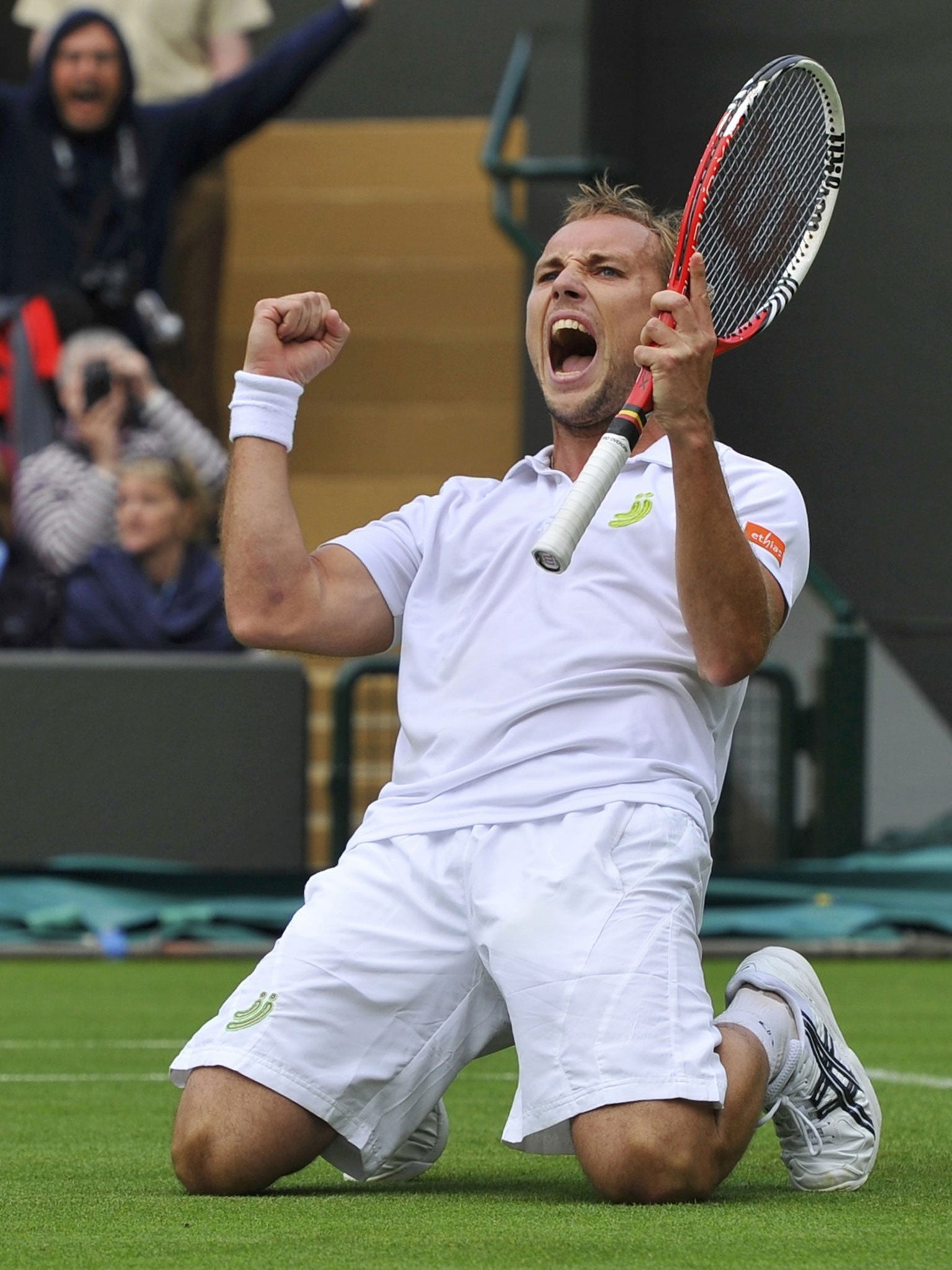Wimbledon 2013: Defeat for weary Rafael Nadal against Steve Darcis was all too predictable
The Spaniard lost in the first round having just won the French Open

Your support helps us to tell the story
From reproductive rights to climate change to Big Tech, The Independent is on the ground when the story is developing. Whether it's investigating the financials of Elon Musk's pro-Trump PAC or producing our latest documentary, 'The A Word', which shines a light on the American women fighting for reproductive rights, we know how important it is to parse out the facts from the messaging.
At such a critical moment in US history, we need reporters on the ground. Your donation allows us to keep sending journalists to speak to both sides of the story.
The Independent is trusted by Americans across the entire political spectrum. And unlike many other quality news outlets, we choose not to lock Americans out of our reporting and analysis with paywalls. We believe quality journalism should be available to everyone, paid for by those who can afford it.
Your support makes all the difference.Some observers might have been tempted to rank Rafael Nadal's defeat on Monday alongside some of the other big shocks of recent decades – Boris Becker's second-round loss to Peter Doohan as he chased a third successive Wimbledon title in 1987 and Lleyton Hewitt's first-round defeat as defending champion to Ivo Karlovic in 2003 come immediately to mind – but the truth is the Spaniard's collision on Court One was an accident waiting to happen.
In the Roland Garros interview room 16 days ago, after Nadal's stupendous victory at the French Open, it was possible to sense how much the effort had taken out of him. With weariness in his eyes, the king of clay talked slowly and deliberately about his achievement, but said he was pulling out of his Wimbledon warm-up tournament in Germany to assess his fitness.
Nadal himself has demonstrated before that doing the French Open-Wimbledon double is by no means impossible, but after all he has gone through in the last year it was clear that the Spaniard would struggle to peak again so soon. He does not need to prove to anyone what a fine grass-court player he is, but in the last two years he has won just two matches on the sport's most challenging surface.
This year the effort of playing Wimbledon with less than a week's wear on his grass-court shoes was just too much, especially after his super-human efforts in the last five months.
Nursing the latest problem with his troublesome knees, Nadal had not hit a ball in anger for seven months when he returned to competition in February. His subsequent run – seven titles from nine tournaments and runner-up in the other two – almost defied belief.
Asked about his preparations for Wimbledon, Nadal said: "I arrived here on Tuesday. Before that I was working at home in the gym and trying to do the right things to recover my body from a very long and successful run of tournaments.
"On grass it is difficult to adapt yourself, to adapt your game. When you don't have the chance to play before [Wimbledon] – and I didn't have that chance this year – it is tougher. I didn't find my rhythm.
"The only thing I can say I can do is keep working hard and keep giving myself chances with my game on this surface. I think and I hope to have a few more years to play here and to play at the right level. I was not able to play great this year or last year. That's obvious. But I'm going to try."
Characteristically, Nadal refused to blame his physical condition for his straight-sets defeat to Steve Darcis, but it was clear that he was well below his best.
The Spaniard was sorely missed when his defeat to Lukas Rosol at Wimbledon last year proved to be his last appearance of the season and it can only be hoped that history will not be repeated. Nadal, who brings more excitement to the court than any other modern-day player, said he expects to be back on court soon, but he kept saying that last year as he pulled out of one tournament after another.
The Spaniard has long complained that the tournament schedule is too demanding and that players have to compete in too many tournaments. Wimbledon's decision to move back a week in the calendar from 2015, creating a three-week gap after the French Open, cannot come soon enough for him.
Nevertheless, Nadal is always one to put defeats in perspective. "It's tough losing in the first round, but the tour continues and life continues," he said. Yes, the tour will continue, but as long as Nadal is missing it will be a poorer place.
Join our commenting forum
Join thought-provoking conversations, follow other Independent readers and see their replies
Comments